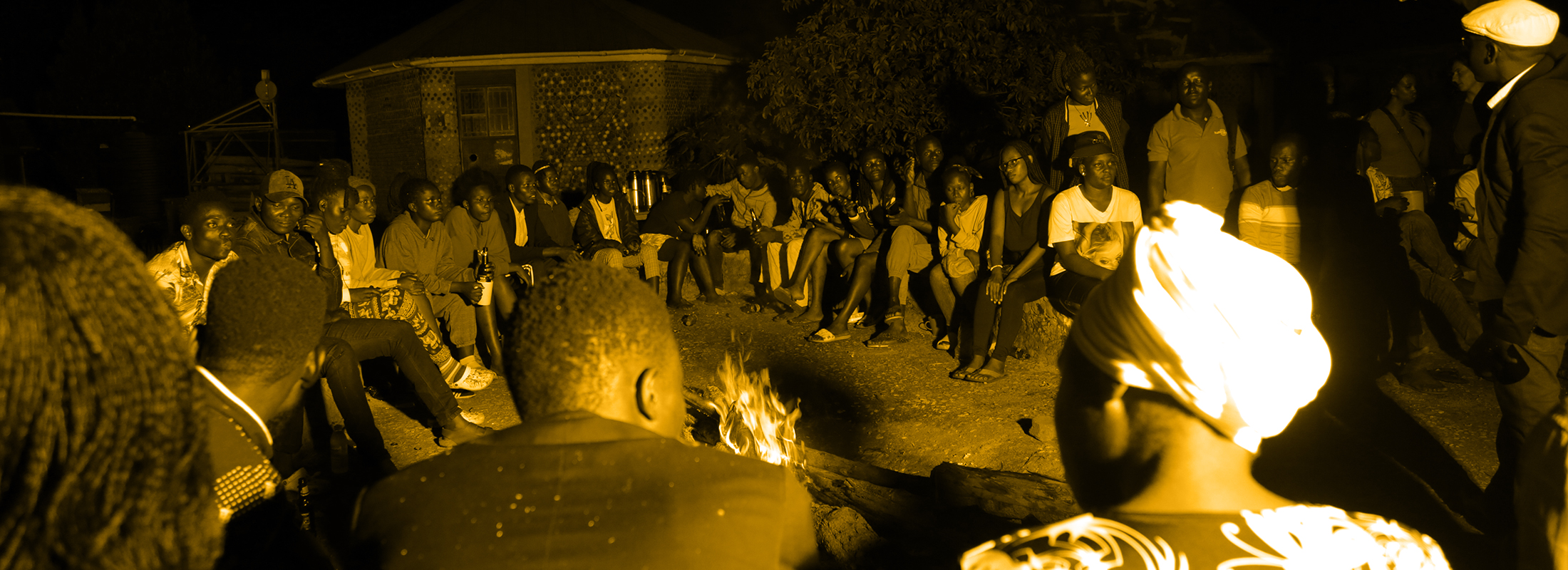Discussing Sexual Violence informally
By E. C. Mar
On one Friday evening, I was part of an event organised by Totya Platform and the management of Social Innovation Academy (SINA) – Mpigi (Hosted by Jangu International), the objective was to engage the scholars and other community members on their understanding of sexual violence and consent. It was an informal gathering of young people around a bonfire, with soft music in the background, drinks and snacks, to anyone else but the organisers, it felt like a regular evening ‘hang-out’ spot artistically built into a map of Africa.
As the interactions went on, I stood and, addressing the crowd, posed the question; What do you know about sexual abuse or violence? SILENCE! was the initial response, in the crowd of faces was a mixture of shame, embarrassment, shock, confusion, blankness and so on, but no verbal answer. In a setting of both female and male youth between the ages of 16 and 30, from various cultures in Africa, Europe and America, no quick answer came forth.
After several minutes of silence I took on a different approach; drawing from my own experience, I asked, “did you know that men or boys can be sexually abused too?”, a few nodes, doubtful glances, murmurs, and whispers to neighbours were an indicator that they were ‘warming up’. I started to explain how as a child my first sexual experience at the age of 7 had been with an older house-help, the response was laughter but then among the male youth, I could see nodes of understanding, and so began the informal discussion on the realities of sexual violence, its definition, effects and other realities.
Awareness of sexual violence in institutions of learning faces two great enemies (At least in Uganda), and we will not get far in the fight against sexual violence if we do not address them.
First, The Culture: In Uganda, for example, we do not discuss sex unless it is to prepare a girl who has “come of age” to please a male partner. Culturally sex is for the “woman to give and man to take”, in addition to this women are taught to submit and men to dominate these cultural sentiments which run deep and are taught from a tender age hinder discussions around sexual violence and consent; the men do not report abuse because it is ‘heard of’ for men to experience anything sexual without their consent (as takers), the women do not talk about it because they have been led to believe that it is their duty to sexually appease the opposite sex, they have no say in the matter and so the struggle continues, victims languish in the pain and trauma of abuse sometimes repetitively.
Secondly, The scientific definitions of sexual violence are not easily understood by most and attempting to communicate them without sharing an experience is challenging. Often while conducting community awareness events, I have witnessed educators struggle to deliver the scientific description of sexual violence to people who cannot relate. Of course, this second problem is also influenced by the first one, but it also stems from the fact that the educator is not drawing from personal experience. Sexual Violence is a relational issue, it’s all about CONSENT which is not scientific.
From experience; during community and school awareness activities, it is my opinion that the most productive discussions about sexual violence are the informal ones. Discussions around a fire on a Friday evening are more likely to get youth talking about their experiences with Sexual Violence than a Seminar. Open spaces of discussion create trust, and fuel discussion which becomes education for both perpetrators and victims.
The author is the Treasurer of Totya Platform’s Board who also volunteers in the Advocacy department.

